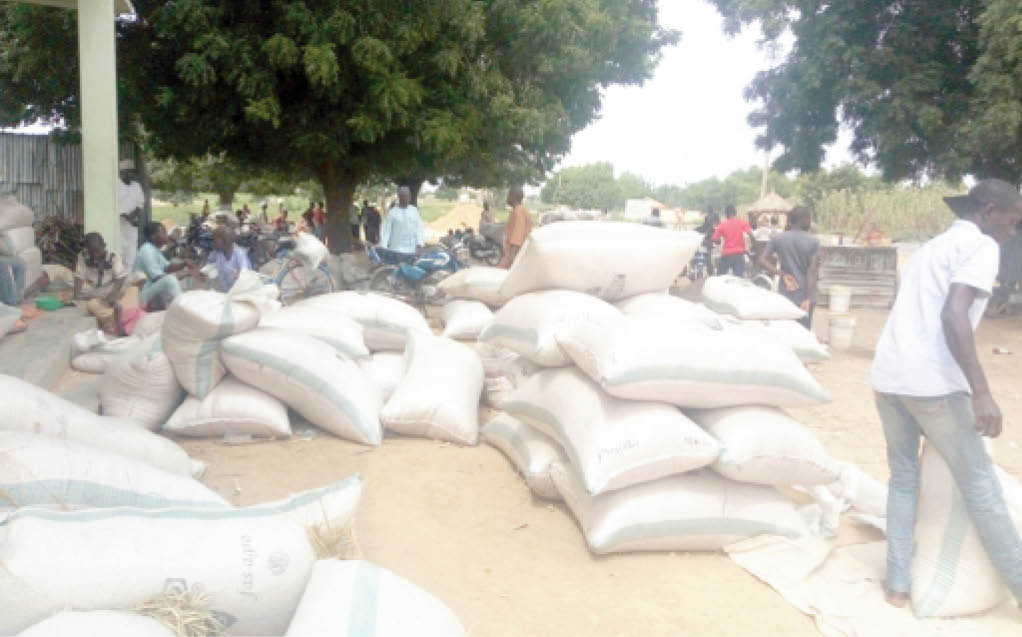Rice millers in Kano State have attributed the hike in rice price to scarcity of paddy in the open market.
Sources in the sector have revealed that many medium and small scale companies, including some mega rice mills in the state, had been forced to shut down operations due to paddy scarcity and the high cost of production, with many workers being sacked in the process.
Recently, the Chairman of the Northern Chamber of Commerce Industry, Mines and Agriculture, Alhaji Dalhatu Abubakar, recently raised alarm over the scarcity of raw materials that is forcing millers to shut down operations.
Abubakar said that reports from the Food and Agriculture Organisation (FAO) of the United Nations (UN) indicated that Nigeria was presently the largest producer of rice in Africa, producing about 8,435,000 tonnes annually, followed by Egypt, Madagascar, Tanzania and Mali.
- Partnership key to overcoming development challenges – BRICS Media Forum
- Gov’ship: INEC closes defence at tribunal
He explained that the implication of paddy scarcity was the force behind the current increase in the price of parboiled rice, which he noted would further increase the activities of smugglers.
The industrialist, who is also the Chairman, Al-Hamsad Integrated Rice Mill, expressed fear that food insecurity might reach its worst level in Nigeria if the present scarcity of paddy, a major raw material for the production of finished rice, persisted in the country.
Abubakar stressed that several millers had cut down production from 24 to 12 hours, while laying off factory workers.
He, therefore, called on the federal government’s intervention in the area of mechanisation and assisting the farmers with inputs that would enable all-year-round production.
He said, “Today, hundreds of millers, both the integrated and small scale ones, are in serious dilemma and finding it extremely difficult to break even. It is difficult to sustain production now because of scarcity of paddy. As I speak, I know many millers that have completely closed their factories.
Meanwhile, many of the millers have attributed the scarcity to insecurity issues that have been forcing many farmers to abandon their farmlands. They also link the scarcity to the Niger Republic coup, which they said had put a halt to importation of paddy from countries like Burkina Faso.
Similarly, a paddy merchant in the state, Alhaji Yusuf Bello, told our reporter that the scarcity was nothing to worry about because it was a perennial issue in the rice value chain.
He explained that it was normal for paddy to be scarce in periods like this when the produce was experiencing transitional progression from dry season production to wet season production.
He added that very soon paddy would be available and the price would crash as some places had begun harvesting, saying, “People shouldn’t panic; it is normal in periods like this to experience scarcity of paddy, and the good news here is that rice farmers have begun harvesting their paddy, and that means supply will return and scarcity will end soon.”
Investigation by Daily Trust on Sunday revealed that the mills that are yet to close because they still have “limited” paddy in their reserve cannot operate 24 hours like they used to do, with many reducing their production time to 12 hours.
It was also gathered that the mills are currently receiving paddy supply even though it is wet, while others have sent their officials to plantations to source paddy directly.
It was observed that rice producing sites have become beehives of activities as millers were rushing to access paddy.
Findings have revealed that despite the scarcity, paddy is said to be selling at an exorbitant price of over N440,000 per tonne, even though the paddy still contains moisture. A tonne in early June, 2023, was sold at N330,000.
However, a N50kg of fished rice is now selling at N41,000 instead of the N33,500 sold in June, 2023.
Therefore, it is feared that rice price may continue to increase as demand increases while paddy supply seems not to be encouraging.

 Join Daily Trust WhatsApp Community For Quick Access To News and Happenings Around You.
Join Daily Trust WhatsApp Community For Quick Access To News and Happenings Around You.


